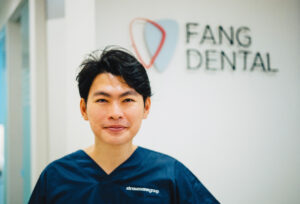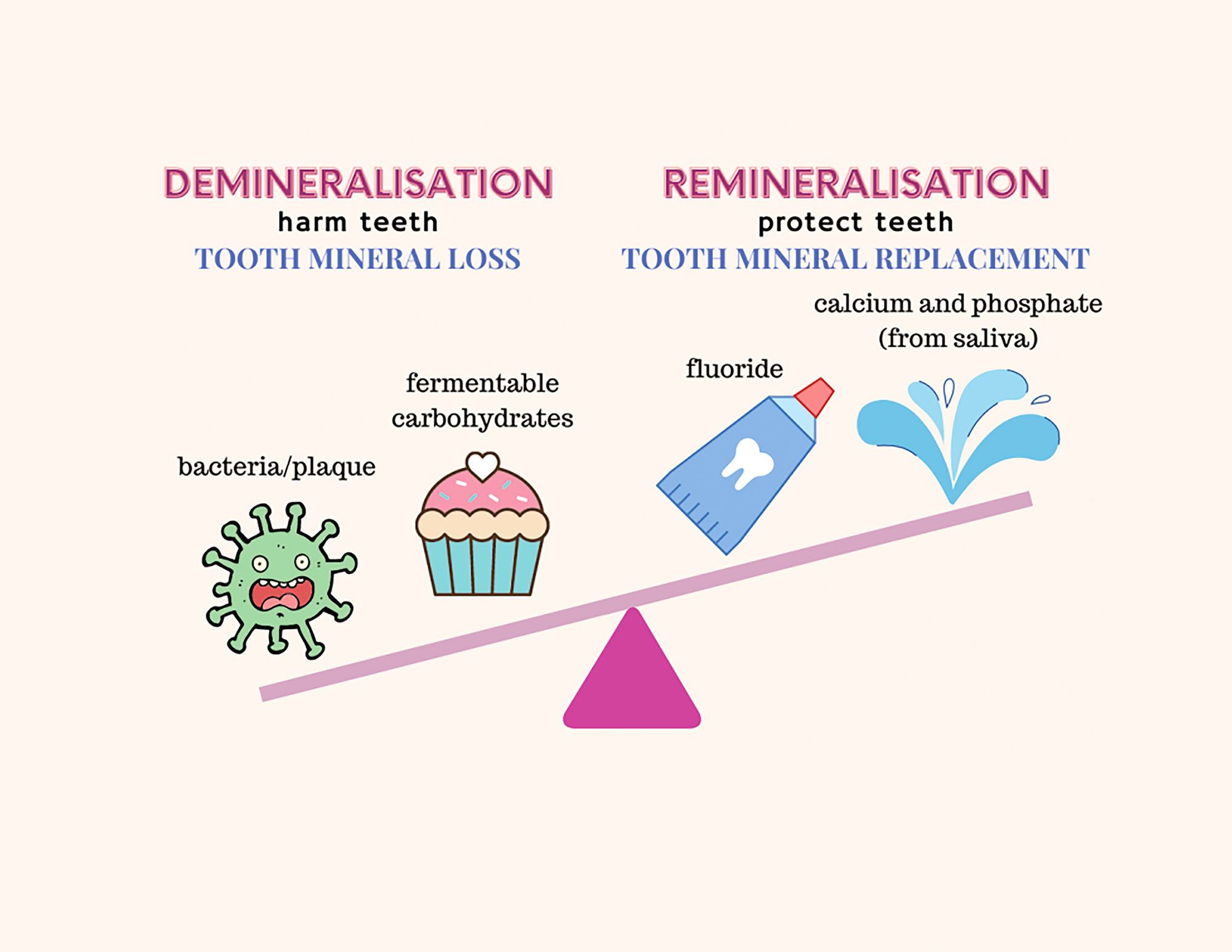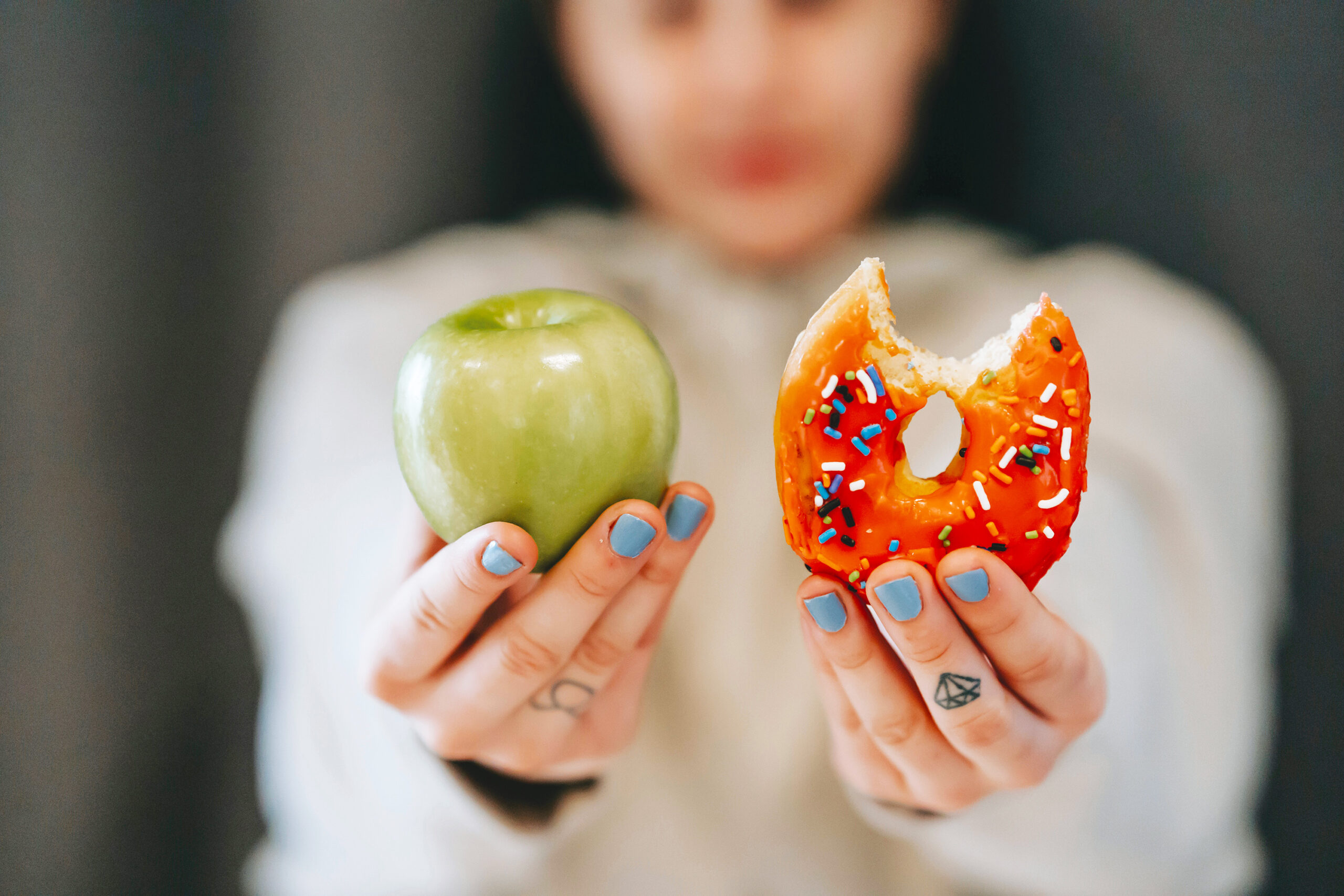- Sponsored Content

Tooth decay (or dental caries) is a common problem afflicting adults and children alike all over the world. Did you know that 4 in every 10 Australian and New Zealand children (aged 5-10) have dental caries? Of those, about 1 in 4 kids have untreated decay. This affects over 600 million children worldwide, which is staggering because tooth decay in kids is preventable! Before we go into how to prevent it, let’s try and understand the science behind decay.
What causes tooth decay?
There is a balance between different types of bacteria in our mouth, with some species producing acid known as cariogenic bacteria. If these bacteria are not cleaned off, the acid they produce can cause our teeth to lose minerals such as calcium from the tooth, this is known as demineralisation. If this is allowed to continue, eventually it will lead to a hole in the tooth, which we know as tooth decay.
 Is demineralisation reversible?
Is demineralisation reversible?
Demineralisation is reversible to a certain extent. The mouth is in constant flux between demineralisation (losing mineral content in the teeth) and remineralisation (depositing mineral content in the teeth). Snacking on foods with high sugar content as well as drinking soft drinks will lower the PH in the mouth, causing demineralisation, while brushing with a fluoridated toothpaste and keeping hydrated will allow saliva to play a protecting ‘remineralising’ role for the teeth. If we change the environment from a ‘demineralising’ environment, back to a more favourable remineralising environment, early decay can be stopped from progressing.
What role does diet play?
Tooth decay is caused by how frequently we snack and how long our teeth are exposed to food. This doesn’t mean just lollies and fizzy drinks; this includes foods that are high in natural sugars or starch. Every time we eat our teeth are exposed to the sugars in food. The bacteria in our mouths (plaque) are fed by these sugars to make acid which causes the tooth decay.
It’s not all bad news. No one is saying that your children should never be allowed to eat sugary foods again! Rather, when choosing snacks, be aware of how much sugar is in them. A good rule of thumb is to aim for less than 10g of sugar per 100g serving. If the product contains fruit, allow for less than 20g of sugar per 100g serving. Remember that food that claims to have ‘no added sugar’ often has a higher amount of natural sugar. The nutritional information for most products can be found on the back of the packaging. Just as importantly, reduce the number of times your children eat these foods and make sure they are eaten in an appropriate time frame, not over long periods.
 Does keeping teeth clean help reduce decay?
Does keeping teeth clean help reduce decay?
Maintaining good oral hygiene can also reduce decay risk! By brushing twice a day for two minutes each time, as well as flossing daily, we can remove the acid producing bacteria before they cause damage.
How often should my child visit the dentist?
Six monthly routine visits to the dentist completes the last piece of the puzzle. Tooth decay can be discovered early before it becomes worse! Gone are the days of just drilling and filling. If spotted early, the dentist may conservatively treat areas of demineralisation before they become a hole by applying fluoride topically to arrest decay. They’re also able to identify high risk areas, such as deep grooves in erupting adult teeth, that can be sealed off preemptively using ‘fissure sealants’ so they can be protected from decay in future.
What age should I bring my child for their first check-up?
We generally advise the first dental visit to be around 12 months old, however it’s never too late to get started. It’s important to pick up any possible problems early! This is also a great opportunity to acclimatise your child to the dental clinic setting, so their first visit to the dentist is a positive experience!
 5 DIETARY TIPS TO STOP PREVENT DECAY
5 DIETARY TIPS TO STOP PREVENT DECAY
- Avoid snack foods that are sticky, gummy, chewy or sweet.
- Avoid grazing! Have set meal times and form a routine.
- Limit fruit to two servings per day. Fruit is good but too much can be harmful.
- Give your kids water with every meal to help wash away lingering food.
- Be selective with snacks. Veggies, cheeses and lean meats are healthy and tasty options.
 Dr Jason Fang is an Australian dentist, hailing from Perth. He has been practicing in Singapore for the last eight years. He takes pride in connecting with and treating locals and the expat community, providing personalised, friendly dental services for the whole family. This has been a tricky time for expats having difficulty visiting their family dentist back home but Dr Fang is pleased to offer a continuous quality of care at the same high standard offered at home.
Dr Jason Fang is an Australian dentist, hailing from Perth. He has been practicing in Singapore for the last eight years. He takes pride in connecting with and treating locals and the expat community, providing personalised, friendly dental services for the whole family. This has been a tricky time for expats having difficulty visiting their family dentist back home but Dr Fang is pleased to offer a continuous quality of care at the same high standard offered at home.
Fang Dental, 304 Orchard Road 05-52
Call: 6235 8183, WhatsApp: 90298469 or visit fangdental.sg



 Is demineralisation reversible?
Is demineralisation reversible? Does keeping teeth clean help reduce decay?
Does keeping teeth clean help reduce decay? 5 DIETARY TIPS TO STOP PREVENT DECAY
5 DIETARY TIPS TO STOP PREVENT DECAY




